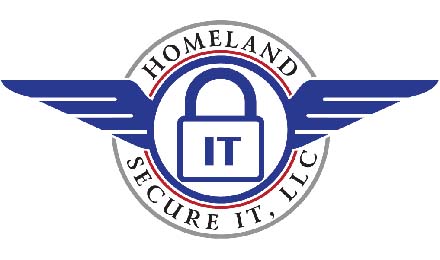It’s time for updates to come out from from your favorite software vendors, and whether you are using a Windows based PC or a Mac, there’s something for you this month!
Applying these updates is VERY IMPORTANT – your machines are vulnerable unless you take steps to secure them.
Up for your patching pleasure are the following (as listed by our partner, WatchGuard on their security blog):
Severity: High
Summary:
- These vulnerabilities affect: Adobe Flash Player and ColdFusion
- How an attacker exploits them: Multiple vectors of attack, including enticing your users to open malicious files or into visiting specially crafted web sites
- Impact: Various results; in the worst case, an attacker can gain complete control of your computer
- What to do: Install the appropriate Adobe patches immediately, or let Adobe’s updater do it for you.
Exposure:
Today, Adobe released two security bulletins describing vulnerabilities in Flash Player and ColdFusion. A remote attacker could exploit the worst of these flaws to gain complete control of your computer. The summary below details some of the vulnerabilities in these popular software packages.
- APSB13-26: Four Flash Player Memory Corruption Flaws
Adobe Flash Player displays interactive, animated web content called Flash. Many users install Flash, so it’s likely present on many of your Windows and Mac computers.
Adobe’s bulletin describes two unspecified memory corruption vulnerabilities in Flash Player running on all platforms. Though the flaws presumably differ technically, they share the same scope and impact. If an attacker can lure you to a web site, or get you to open a document containing specially crafted Flash content, he could exploit these flaws to execute code on your computer, with your privileges. If you have administrative or root privileges, the attacker could gain full control of your computer.
Adobe assigned these flaws their highest severity rating for Windows and Mac computers, but a lesser severity for Linux machines.
Adobe Priority Rating: 1 for Windows and Mac (Patch within 72 hours)
Adobe ColdFusion is an application server that allows you to develop and deploy web applications. It suffers from two security vulnerabilities, which Adobe does not describe in much technical detail; a reflected cross site scripting (XSS) vulnerability (CVE-2013-5326), and an unauthorized remote read access flaw (CVE-2013-5328). Other than that, the bulletin shares very little about the scope or impact of these flaws, so we’re unsure how easy or hard it is for attackers to leverage them. Presumably, if an attacker could trick someone in clicking a specially crafted link, he could leverage the XSS flaw to do anything on your web site that the user could. We also assume an attacker could exploit the remote read flaw to potentially gain access to files on your server, such as its web application source code. In any case, they rate the vulnerabilities as Priority 1 issues for version 10, which is their high severity rating.
As an aside, Adobe’s own network was recently breached via a zero day flaw in ColdFusion. Adobe claims these ColdFusion issues are not associated with their network breach. However, the discoverer of one of the issues, Alex Holden, was actually one of the researchers who uncovered Adobe’s data breach, and he claims one of the flaws has been used by attackers this year to break into other companies. In other words, you should apply these updates immediately if you use ColdFusion
Adobe Priority Rating: 1 for version 10 (Patch within 72 hours)
Solution Path:
Adobe has released updates for all their affected software. If you use any of the software below, we recommend you download and deploy the corresponding updates as soon as possible, or let Adobe’s automatic updater do it for you:
APSB13-26: Upgrade to the latest Flash Player (11.9.900.152 for Windows)
Severity: High
Summary:
- These vulnerabilities affect: Microsoft Office related products, including Word and Outlook
- How an attacker exploits them: Typically by enticing users to open or interact with maliciously crafted Office documents or email
- Impact: In the worst case, an attacker can gain complete control of your Windows computer
- What to do: Install the appropriate Microsoft patches as soon as possible, or let Windows Automatic Update do it for you.
Exposure:
Today, Microsoft released two security bulletins that fix four vulnerabilities in Word and Outlook. We summarize the bulletins below, in order from highest to lowest severity.
- MS13-091: Multiple Word Memory Corruption Vulnerabilities
Word is the popular word processor that ships with Office. It suffers from three memory corruption vulnerabilities having to do with how it handles malformed Word and WordPerfect files. They all differ technically, but share the same scope and impact. By luring one of your users into downloading and opening a malicious Word or WordPerfect document, an attacker can exploit any of these flaws to execute code on that user’s computer, with that user’s privileges. If your users have local administrator privileges, the attacker gains complete control of their PCs. These flaws affect all versions of Word except for Word for Mac.
Microsoft rating: Important
- MS13-094: Outlook S/MIME Information Disclosure Flaw
Outlook is the popular Windows email client that ships with Office. Secure/Multipurpose Internet Mail Extensions (S/MIME) is a standard for encrypting MIME data, or put more simply, it allows you to encrypt email. Outlook suffers from an information disclosure vulnerability involving the way it handles specially crafted S/MIME certificates. By convincing one of your users to open or preview a malicious email with a specially crafted S/MIME certification, an attacker could exploit this flaw to learn a bit about the victim system, including its IP address and the ports it listens on. However, the attacker could not leverage the flaw to compromise the victim system.
Microsoft rating: Important
Solution Path:
Microsoft has released Office-related patches that correct all of these vulnerabilities. You should download, test, and deploy the appropriate updates throughout your network as soon as possible. If you choose, you can also let Windows Update automatically download and install these updates for you.
The links below point directly to the “Affected and Non-Affected Software” section of each bulletin, where you can find all of Microsoft’s update links:
MS13-094
Severity: High
Summary:
- These vulnerabilities affect: All current versions of Windows
- How an attacker exploits them: Multiple vectors of attack, including luring users to malicious web sites or into opening malicious files
- Impact: In the worst case, an attacker can gain complete control of your Windows computer
- What to do: Install the appropriate Microsoft patches as soon as possible, or let Windows Automatic Update do it for you
Exposure:
Today, Microsoft released five security bulletins describing a like number of vulnerabilities in Windows and its components. A remote attacker could exploit the worst of these flaws to potentially gain complete control of your Windows PC. We recommend you download, test, and deploy these critical updates as quickly as possible.
The summary below lists the vulnerabilities, in order from highest to lowest severity.
- MS13-090: ActivX Control Code Execution Vulnerability
ActiveX controls are essentially small programs, often shared between applications, that work behind the scenes performing minor tasks on Windows-based computers. They are kind of like Microsoft-only Java applets. Many Microsoft products, including Windows, ship with many different ActiveX controls for performing various tasks.
Unfortunately, a particular Windows ActiveX control (InformationCardSigninHelper) that Internet Explorer (IE) uses suffers from a remote code execution vulnerability. If an attacker can entice one of your users into visiting a maliciously crafted web page, he can exploit this flaw to execute code on that user’s computer, inheriting that user’s level of privileges. If your user has local administrative privileges, the attacker gains full control of the user’s machine.
Researchers first discovered attackers exploiting this flaw in the wild. They’re currently exploiting it in advanced, targeted attacks. For that reason, we recommend you apply this patch as quickly as you can.
Microsoft rating: Critical
- MS13-089: GDI Integer Overflow Vulnerability
The Graphics Device Interface (GDI) is one of the Windows components that helps applications output graphics to your display or printer. GDI suffers from an integer overflow vulnerability involving its inability to properly handle specially malformed Windows Write (.wri) files. By luring one of your users into opening a Write file in WordPad, an attacker could leverage this flaw to execute code on that user’s computer, with that user’s privileges. If your users have local administrative privileges, the attacker gains full control of their computer.
Microsoft rating: Critical
- MS13-092: Hyper-V Elevation of Privilege Vulnerability
Hyper-V is Microsoft’s virtualization platform, which ships with the latest versions of Windows Server. It suffers from an elevation of privilege vulnerability having to do with how it handles specially crafted hypercalls. If an attacker has administrative privileges on a guest virtual machine (VM) running on your Windows Hyper-V server, she can exploit this flaw to either crash the Hyper-V host and all your VMs, or to execute arbitrary code on one of the other guest VMs running on the same physical server. This flaw only affects Windows 8 x64 Edition and Windows Server 2012.
Microsoft rating: Important
- MS13-093: AFD Information Disclosure Flaw
The Ancillary Function Driver (AFD) is a Windows component that helps manage Winsock TCP/IP communications. It suffers from a vulnerability involving the data it copies from kernel memory to user memory. In a nutshell, if a local attacker can log into one of your Windows computers and run a custom program, he could leverage this flaw to gain access to information in kernel space that he shouldn’t have access to. However, the attacker would need valid credentials on the target system, and could not leverage the flaw to elevate his privileges. This flaw only poses a minor risk.
Microsoft rating: Important
- MS13-095: Digital Signature Handling DoS Flaw
Windows ships with various components that allow it to handle the digital certificates and signatures used to establish secure communications. Unfortunately, Windows does not properly handle malformed X.509 certificates. By sending a specially crafted X.509 certificate to a Windows web server, an attacker could can a denial of service (DoS) condition, preventing the web server from responding future requests.
Microsoft rating: Important
Solution Path:
Microsoft has released various updates that correct all of these vulnerabilities. You should download, test, and deploy the appropriate updates throughout your network immediately. If you choose, you can also let Windows Update automatically download and install them for you. As always, you should test your updates before deploying them. Especially, server related updates.
The links below point directly to the “Affected and Non-Affected Software” section of each bulletin, where you can find links to the various updates:
These alerts were researched and written by Corey Nachreiner, CISSP (@SecAdept).
As always, should you have issues applying these patches / updates, or questions, please do not hesitate to reach out to us if you are in the Greenville / Upstate SC area. 864-990-4748


